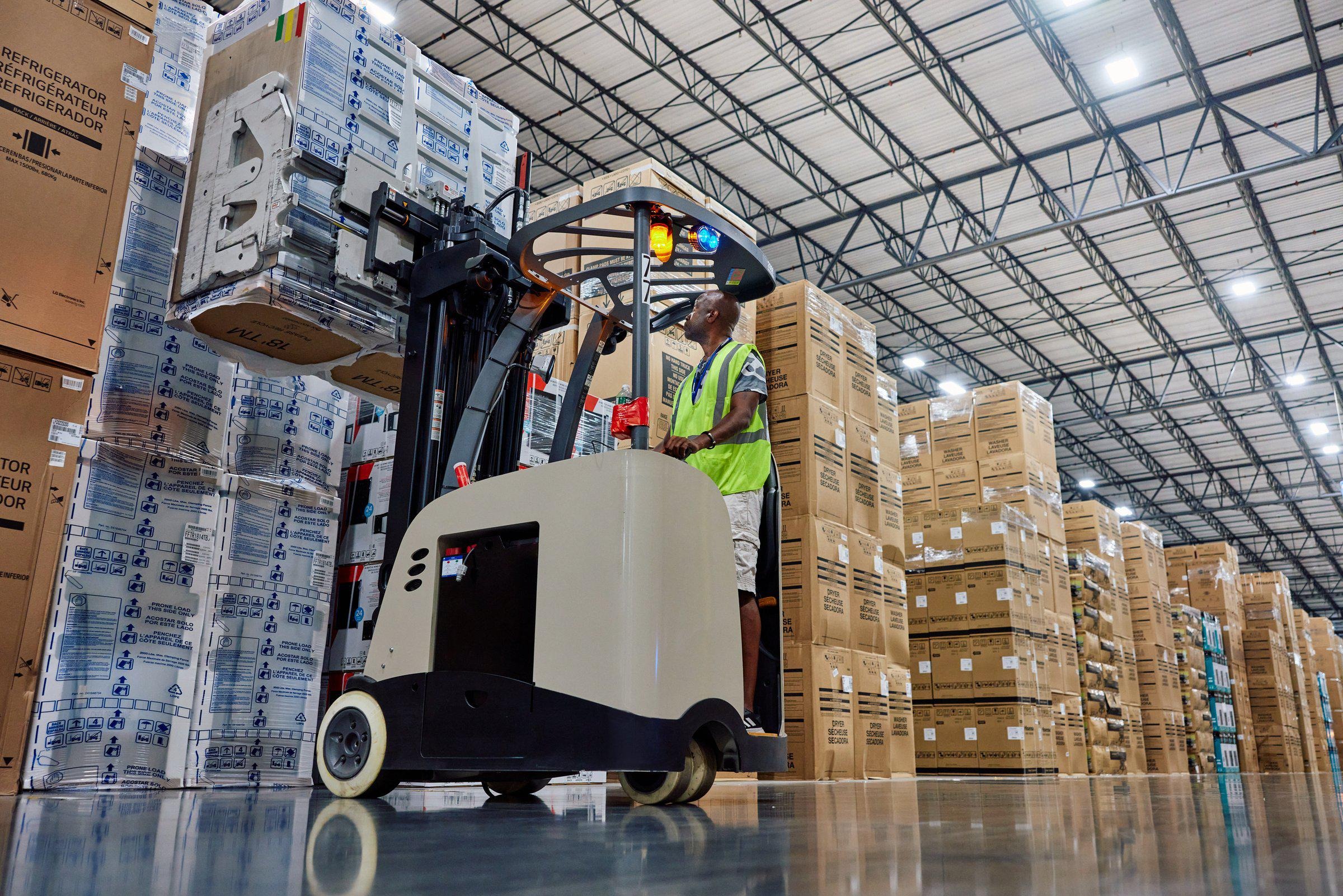Introduction: Why Logistics Is the Heart of Supply Chain Efficiency
In a world driven by global trade and instant delivery, the role of logistics in streamlining supply chain operations has never been more critical. Logistics serves as the connective tissue between suppliers, manufacturers, distributors, and consumers — ensuring products arrive on time, in good condition, and at minimal cost.

According to Gartner, companies that invest in advanced logistics technologies can reduce supply chain costs by up to 15% while improving service levels. From inventory optimization to last-mile delivery, logistics transforms fragmented operations into a seamless, data-driven ecosystem.
Understanding Logistics in the Supply Chain Context
What Is Logistics?
Logistics refers to the process of planning, implementing, and controlling the efficient movement and storage of goods, services, and information from origin to consumption. It includes transportation, warehousing, inventory management, packaging, and distribution.
In a broader sense, logistics ensures that every part of the supply chain — procurement, production, and delivery — works in harmony.
Key Functions of Logistics:
-
Transportation management.
-
Warehouse and inventory control.
-
Order processing and fulfillment.
-
Packaging and labeling.
-
Demand forecasting and supply planning.
-
Reverse logistics (handling returns and recycling).
Example:
When Amazon processes millions of daily orders, logistics determines how products move from fulfillment centers to customer doors within 24 hours.
The Strategic Role of Logistics in Supply Chain Operations
1. Enhancing Efficiency and Cost Reduction
Efficient logistics management minimizes operational costs across the supply chain — from transportation to warehousing.
How It Works:
-
Optimizing routes with AI-powered systems like Oracle SCM Cloud.
-
Consolidating shipments to reduce fuel and labor costs.
-
Implementing “Just-in-Time” (JIT) strategies to reduce excess inventory.
Stat:
According to Deloitte, optimized logistics can cut freight costs by 10–30% through route optimization and better load utilization.
2. Improving Supply Chain Visibility
Visibility — the ability to track goods and processes in real time — is essential for proactive decision-making.
Tools that Improve Visibility:
-
IoT sensors and RFID tags to monitor shipment status.
-
Blockchain technology for transparent documentation.
-
Cloud-based logistics platforms like SAP Transportation Management.
Example:
Maersk and IBM’s TradeLens platform uses blockchain to track global shipments, reducing customs delays by up to 40%.
Benefit:
Visibility prevents bottlenecks, mitigates risks, and ensures faster response to disruptions.
3. Strengthening Supplier and Customer Relationships
Logistics bridges the gap between supply chain partners, ensuring trust and consistency.
Key Practices:
-
Coordinated deliveries that align with supplier production schedules.
-
Transparent communication about lead times and delays.
-
Reliable, on-time customer deliveries.
Example:
Toyota’s Supply Chain relies on synchronized logistics with its suppliers, enabling the automaker to maintain lean production and deliver vehicles efficiently worldwide.
4. Enhancing Global Trade and Market Expansion
In an era of globalization, logistics makes international operations possible.
Logistics Supports Global Trade Through:
-
Cross-border transportation networks (air, sea, rail, and road).
-
Customs clearance and regulatory compliance management.
-
Multimodal shipping integration for cost efficiency.
Case Study:
DHL Global Forwarding helps multinational clients streamline imports and exports through automated customs systems, reducing clearance time from days to hours.
Pro Tip:
Companies expanding globally should partner with 3PL or 4PL providers that specialize in cross-border logistics.
How Logistics Streamlines Supply Chain Operations
1. Integration of Technology in Logistics Management
Technology is transforming how logistics aligns with broader supply chain goals.
Innovations Driving Efficiency:
-
Artificial Intelligence (AI): Predicts demand and optimizes routes.
-
Internet of Things (IoT): Tracks real-time fleet data.
-
Automation: Robots and drones for warehouse management.
-
Big Data Analytics: Identifies patterns for cost reduction.
Example:
Walmart uses AI-driven analytics to optimize inventory levels and avoid overstocking, leading to annual savings of over $1 billion.
2. Data-Driven Decision Making
Data analytics allows logistics teams to monitor performance KPIs such as delivery accuracy, turnaround time, and transportation costs.
Essential Metrics to Track:
-
On-time delivery rate.
-
Cost per shipment.
-
Inventory turnover ratio.
-
Order fulfillment accuracy.
Benefit:
Data insights support predictive planning, helping companies anticipate demand fluctuations and adjust accordingly.
3. Streamlined Warehouse and Inventory Management
Warehousing is more than storage — it’s a dynamic hub for coordination.
Techniques for Efficient Warehouse Management:
-
Automated storage and retrieval systems (AS/RS).
-
Cross-docking to minimize storage time.
-
Inventory tracking via barcodes and RFID.
-
WMS (Warehouse Management Systems) integration with ERP tools.
Example:
Procter & Gamble (P&G) leverages WMS to manage global inventory across 200+ facilities, ensuring optimal stock levels and shorter lead times.
4. Transportation Optimization
Transportation can account for over 50% of total logistics costs. Optimizing this element yields significant savings.
Optimization Strategies:
-
Implement dynamic routing based on traffic and weather.
-
Combine modes (air, sea, road) for flexibility.
-
Outsource to specialized 3PL providers for efficiency.
Example:
FedEx integrates AI route planning with fuel-efficient vehicles, improving delivery speed while cutting emissions by 20%.
The Growing Importance of Sustainable Logistics
Sustainability is now a key performance metric in logistics operations.
Green Logistics Practices:
-
Electrifying fleets with hybrid or EV trucks.
-
Using recyclable packaging.
-
Reducing warehouse energy consumption.
-
Optimizing delivery routes to cut emissions.
Example:
UPS aims for carbon neutrality by 2050 through renewable fuels and route optimization algorithms.
Stat:
According to World Economic Forum, green logistics can reduce global supply chain emissions by up to 30%.
Pro Tip:
Sustainability isn’t just good for the planet — it’s a competitive differentiator for environmentally conscious consumers.
Outsourcing Logistics: The Power of 3PL and 4PL Providers
Third-Party Logistics (3PL)
3PL providers manage transportation, warehousing, and fulfillment for companies.
Benefits of 3PL:
-
Access to global logistics networks.
-
Cost savings through shared resources.
-
Scalability for seasonal demand changes.
Example:
Rakuten Super Logistics provides U.S. retailers with 3PL services that reduce shipping times by 40%.
Fourth-Party Logistics (4PL)
4PLs oversee the entire supply chain, coordinating multiple 3PLs and managing strategic decisions.
Example:
Accenture’s 4PL services integrate technology and data analytics to help clients achieve end-to-end supply chain visibility.
Pro Tip:
Choose providers with industry-specific expertise and digital capabilities for maximum ROI.
Common Challenges in Logistics Management
Even the best supply chains face logistical hurdles.
Key Challenges:
-
Disruptions: Natural disasters, strikes, or political unrest.
-
Rising Fuel Costs: Impacts transportation budgets.
-
Labor Shortages: Especially in trucking and warehousing.
-
Cybersecurity Risks: Data breaches in digital logistics systems.
Solution:
Develop contingency plans, diversify suppliers, and invest in automation and data security to mitigate risks.
Example:
During the 2021 global shipping crisis, companies with diversified logistics networks — like Nike — were able to adapt faster to port delays.
Author’s Insight
Having worked with logistics professionals across manufacturing and retail sectors, I’ve seen firsthand how strategic logistics planning can transform operations.
One client, a mid-sized food distributor, struggled with delivery delays and excess inventory. By introducing demand forecasting tools and partnering with a 3PL provider, they reduced stockouts by 60% and improved delivery times by 35%.
The lesson? Logistics isn’t just about moving goods — it’s about moving intelligently.
When logistics aligns with business goals, the entire supply chain becomes a competitive advantage.
Conclusion: Logistics as the Engine of Supply Chain Excellence
The role of logistics in streamlining supply chain operations extends far beyond transportation — it’s the foundation of modern commerce.
From advanced technologies to sustainable strategies, effective logistics enables agility, visibility, and resilience in an unpredictable world.
As companies adapt to digital transformation and global challenges, investing in logistics isn’t just smart — it’s essential. The future of supply chains will belong to those who see logistics not as a cost, but as a strategic advantage that powers performance and customer satisfaction.




